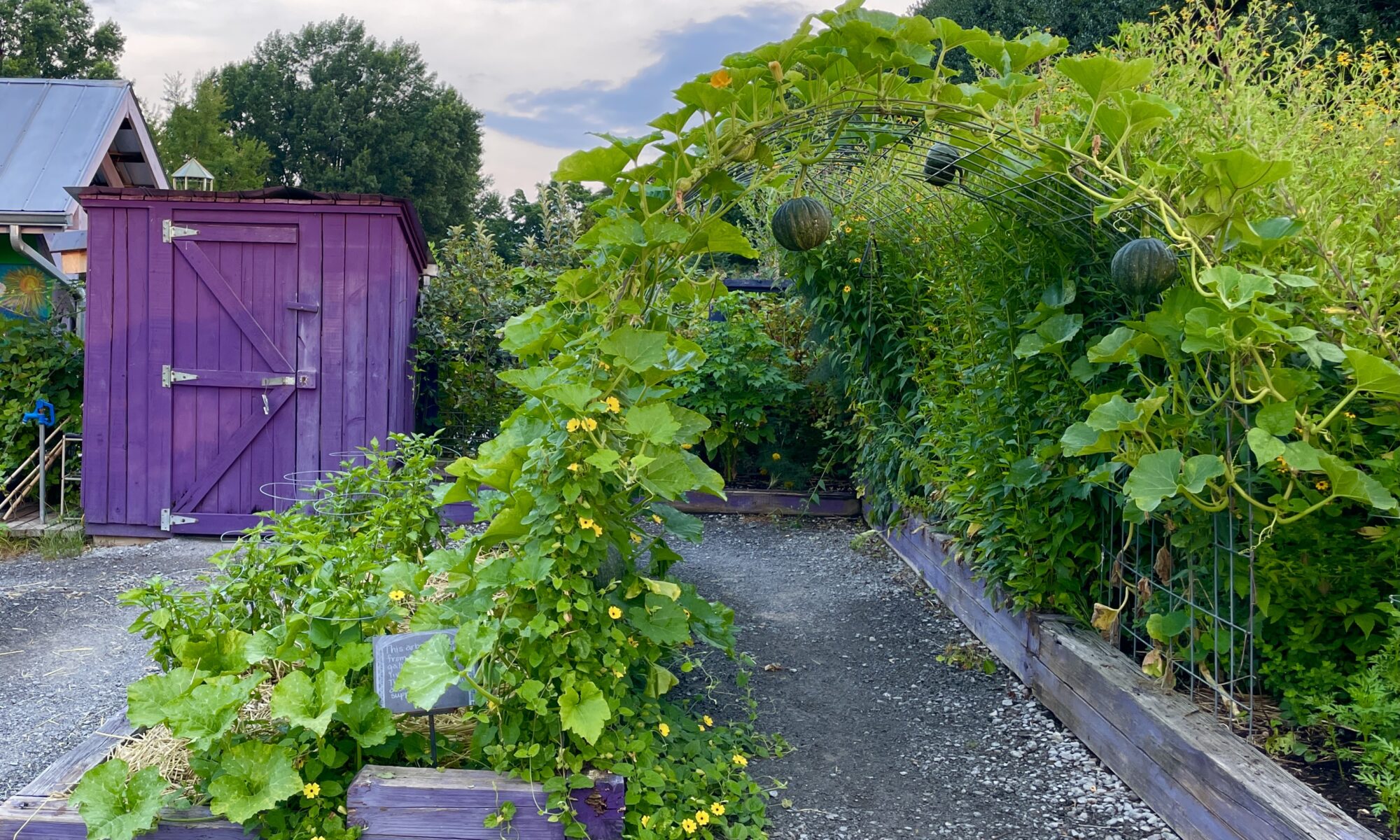Knoxville, Tennessee, USA
January 2, 2024
 The vigorous vines of the Tetsukabuto winter squash grow on a trellis and easily hold the round fruit. Airflow keeps the skin from rotting in the hot and humid summer. Photo courtesy UTIA.
The vigorous vines of the Tetsukabuto winter squash grow on a trellis and easily hold the round fruit. Airflow keeps the skin from rotting in the hot and humid summer. Photo courtesy UTIA.
UT Gardens’ January Plant of the Month
Submitted by Holly Jones, horticulturist and kitchen garden manager, UT Gardens, Knoxville
Thanks to the work of agricultural researchers at Oregon State University, a fabulous winter squash variety has been reintroduced for both home gardeners and large-scale producers. In a muti-year comparison trial, researchers grew fifteen different varieties of winter squash, hoping to find one that would perform well despite the intense fungal disease pressure that local farmers were experiencing. One clear winner emerged. An interspecies Japanese hybrid called Tetsukabuto (Cucurbita maxima x moschata), or Tetsu for short, not only fruited almost twice as much as other plants in the trial but also stored remarkably well, scored high in taste tests and showed very good resistance to squash vine borer, powdery mildew and other common fungal pathogens.
Prior to this study, Tetsu seeds were hard to find in the United States, but now they are available from many retail sources. A quick look at the reviews will tell you that growers are finding similar success in various growing zones throughout the country. For successful pollination, aka fruit production, you need to plant either a kabocha (Cucurbita maxima) type or a butternut (Cucurbita moschata) type nearby. If your space is limited, look for dwarf or bush type varieties for your pollen source.
We have grown these twice at the UT Gardens, Knoxville, and 2024 was not as successful as the previous year. We tried them for the first time on a trellis system, and we were very impressed. The vigorous, attractive green vines quickly covered our cattle panel arch, and the medium-sized, round fruit was easily held by strong sturdy stems.
This year we tried growing them in a field directly on the ground, and many of the fruit were ruined by rotten spots on the underside. Lesson learned: either grow this squash vertically, or provide each one with its own little perch, like a terracotta pot or something similar, to increase airflow and keep the skin from rotting in our hot humid summers. They will be featured with purple flowering Hyacinth bean vines on an archway in the kitchen garden for the 2025 growing season.
The Japanese word Tetsukabuto translates as iron helmet, and the skin is quite hard. But they can easily be peeled raw with a good sharp chef’s knife and a committed chef. You also can roast them in the oven whole with a few punctures to let the steam escape, then scoop out the rich, delicious flesh to be used for savory soups, sweet pie filling or whipped with butter and salt for a side dish.
The UT Gardens includes plant collections located in Knoxville, Crossville and Jackson, Tennessee. Designated as the official botanical garden for the State of Tennessee, the UT Gardens are part of the UT Institute of Agriculture. The Gardens’ mission is to foster appreciation, education and stewardship of plants through garden displays, educational programs and research trials. The Gardens are open during all seasons and free to the public. For more information, see the Gardens website: utia.tennessee.edu/state-botanical-garden.
The University of Tennessee Institute of Agriculture is comprised of the Herbert College of Agriculture, UT College of Veterinary Medicine, UT AgResearch and UT Extension. Through its land-grant mission of teaching, research and outreach, the Institute touches lives and provides Real. Life. Solutions. to Tennesseans and beyond. utia.tennessee.edu.